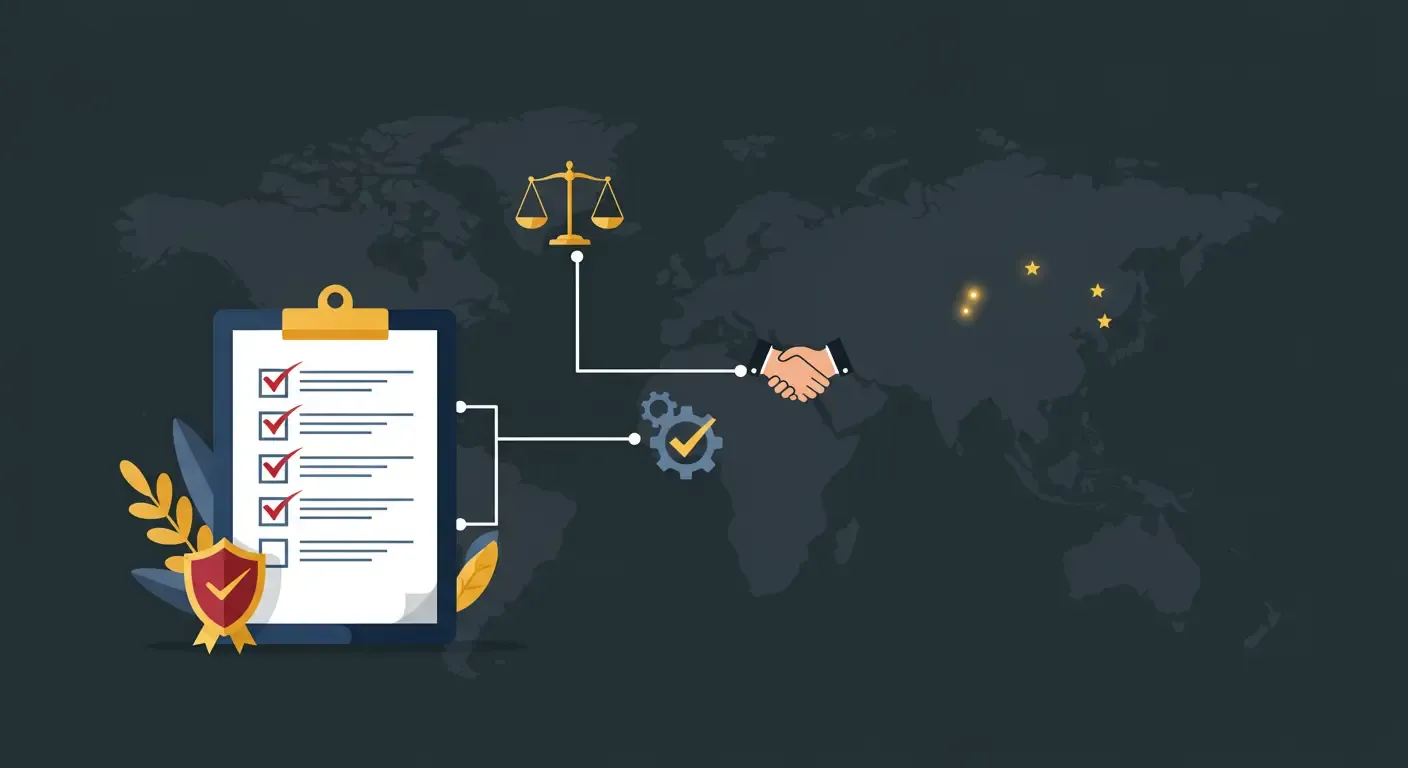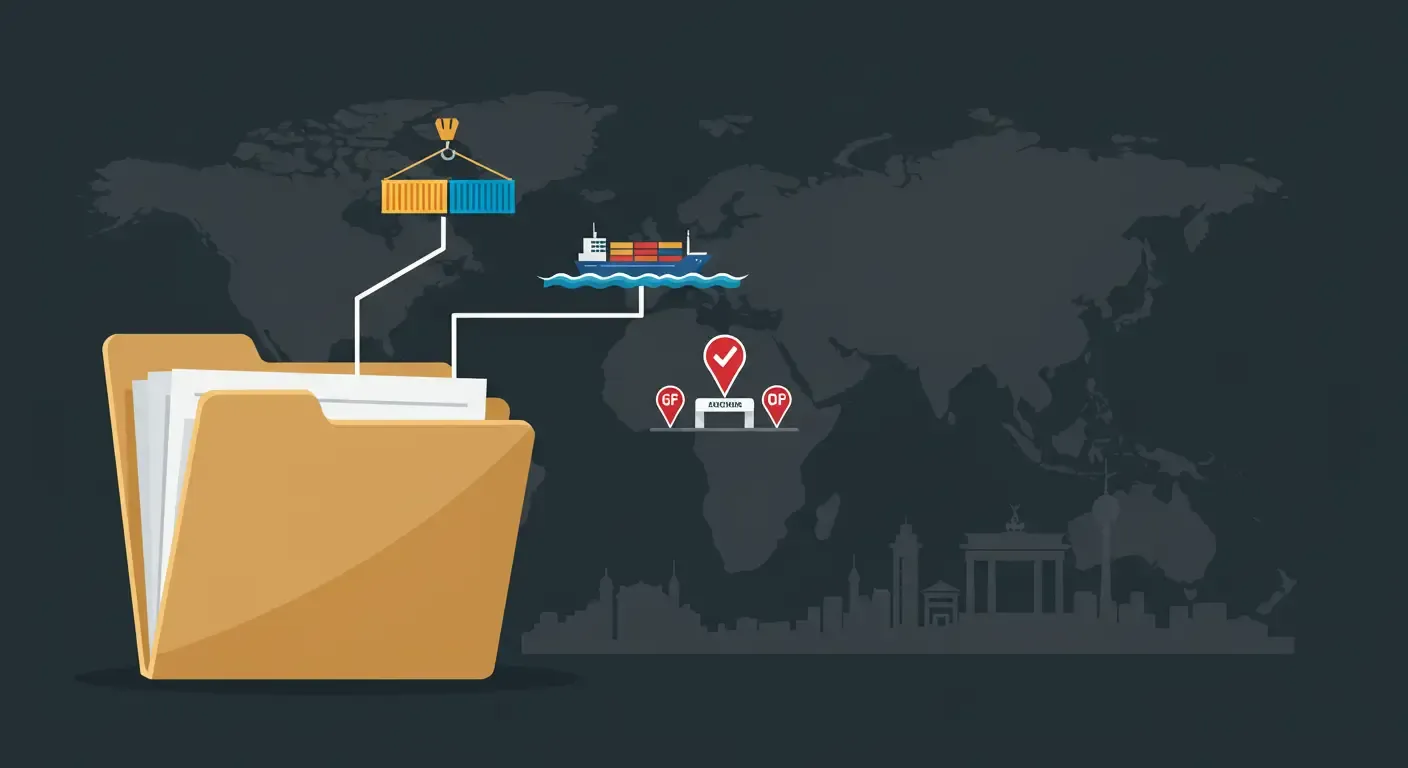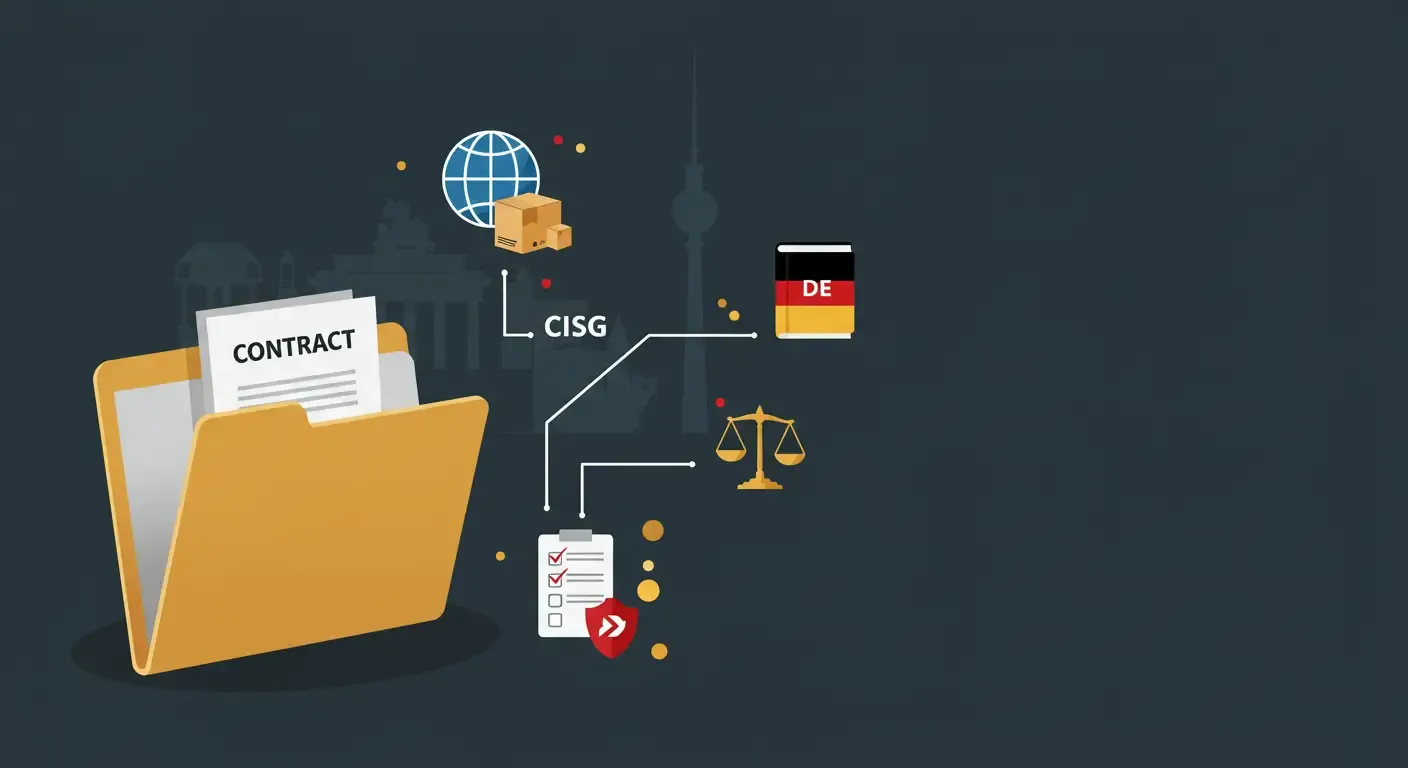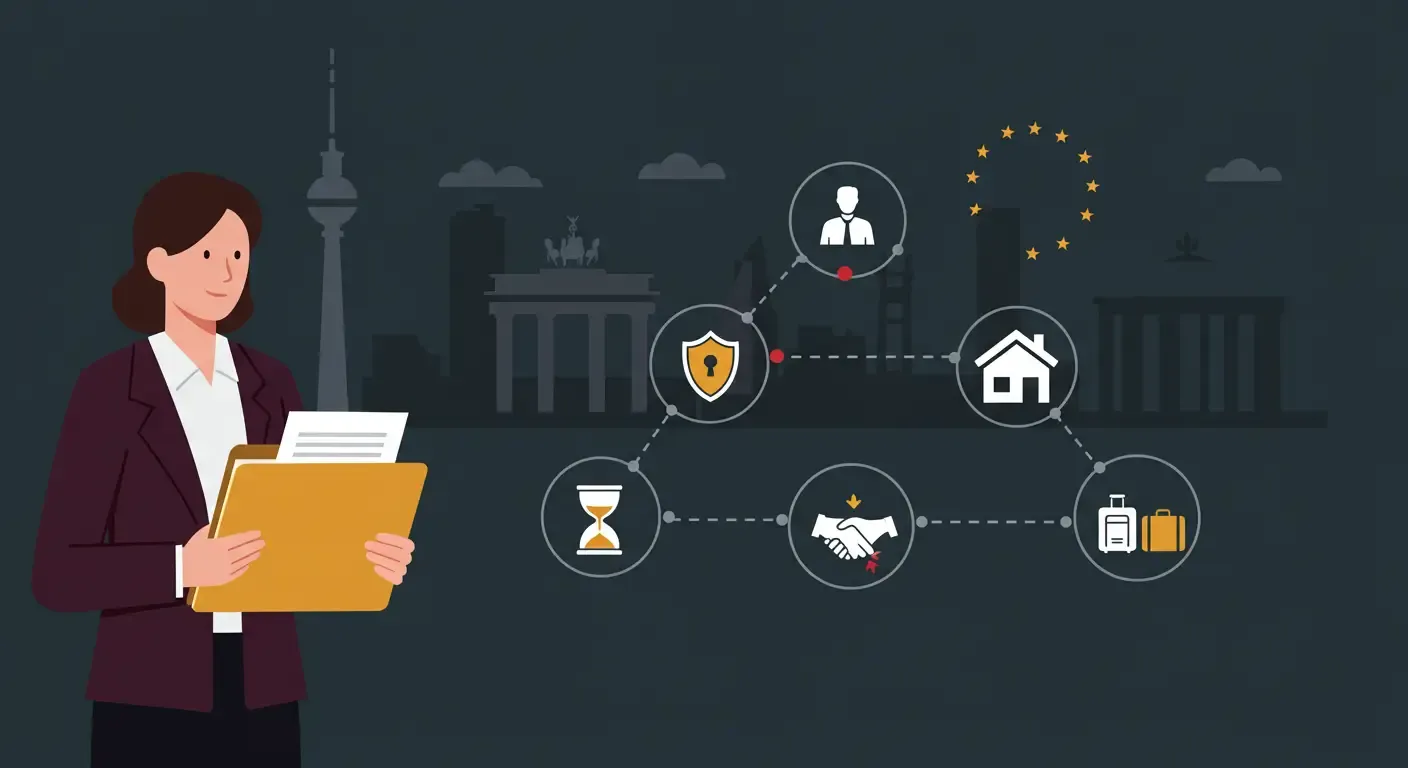Internationale Scheidung in der EU: Brüssel IIb (Zuständigkeit) und Rom III (anwendbares Recht) einfach erklärt
Ich berate Mandanten in grenzüberschreitenden Familiensachen. Unten finden Sie eine einfache Orientierung: wo eingereicht wird (Brüssel IIb) und welches Recht gilt (Rom III).
Überblick in einer Minute
- Brüssel IIb: legt fest, welches Gericht eines EU-Mitgliedstaats für die Scheidung zuständig ist und wie Entscheidungen in der EU anerkannt werden.
- Rom III: legt fest, w welches nationale Recht das Gericht auf Scheidung/Trennung anwendet (Rechtswahl).
- Hinweis: Brüssel IIb gilt in allen EU-Mitgliedstaaten außer Dänemark. Rom III gilt in den teilnehmenden Mitgliedstaaten im Rahmen der „verstärkten Zusammenarbeit“.
Wo reichen wir ein? (Brüssel IIb — einfache Anknüpfungen)
Die Sache kann vor den Gerichten des Mitgliedstaats anhängig gemacht werden,
- in dem beide Ehegatten ihren gewöhnlichen Aufenthalt haben; oder
- in dem sie zuletzt ihren gewöhnlichen Aufenthalt hatten (wenn einer dort noch lebt); oder
- in dem der Antragsgegner lebt; oder
- bei einem gemeinsamen Antrag dort, wo einer der Ehegatten lebt; oder
- wo der Antragsteller lebt, wenn er/sie dort mindestens 1 Jahr vor Antragstellung gelebt hat; oder
- wo der Antragsteller 6 Monate vor Antragstellung gelebt hat und Staatsangehöriger dieses Staates ist; oder
- im Staat der gemeinsamen Staatsangehörigkeit beider Ehegatten.
„Gewöhnlicher Aufenthalt“ meint den tatsächlichen Lebensmittelpunkt: stabile Präsenz, nicht nur Besuche.
Welches Recht gilt? (Rom III — zwei Wege)
1) Rechtswahl (empfohlen, wenn möglich)
Ehegatten können schriftlich eines dieser Rechte für Scheidung/Trennung wählen:
- das Recht des Staates, in dem sie bei der Vereinbarung gewöhnlich ansässig sind;
- das Recht ihres letzten gemeinsamen gewöhnlichen Aufenthalts (wenn einer dort noch lebt);
- das Recht der Staatsangehörigkeit eines Ehegatten; oder
- das Recht des angerufenen Gerichts (lex fori).
2) Keine Vereinbarung? (Auffangreihenfolge)
- Recht des Staates, in dem die Ehegatten bei Anrufung des Gerichts gewöhnlich ansässig sind;
- sonst Recht ihres letzten gemeinsamen gewöhnlichen Aufenthalts (wenn höchstens 1 Jahr beendet und einer dort noch lebt);
- sonst Recht des Staates ihrer gemeinsamen Staatsangehörigkeit bei Antragstellung;
- sonst das Recht des angerufenen Gerichts.
Rom III ist „universell“: Es kann auf das Recht eines teilnehmenden oder nicht teilnehmenden Mitgliedstaats oder sogar eines Drittstaates verweisen.
Häufige Fragen aus der Praxis
„Wir leben in verschiedenen Ländern. Können wir beide einreichen?“
Oft ja. Brüssel IIb bietet mehrere Zuständigkeitsgründe. Das zuerst angerufene Gericht behält die Sache in der Regel. Gute Abstimmung vermeidet Doppelverfahren.
„Wir bevorzugen ein neutrales Recht. Können wir es wählen?“
Möglich. Gilt Rom III und passt das neutrale Recht zu einer der zulässigen Anknüpfungen (Aufenthalt, letzter Aufenthalt, Staatsangehörigkeit oder Forum), ist eine schriftliche Rechtswahl wirksam.
„Was ist mit Kindern?“
Elterliche Verantwortung (Sorgerecht, Umgang) folgt eigenen Regeln der Brüssel-IIb-Verordnung, ausgerichtet am gewöhnlichen Aufenthalt des Kindes. Dieser Beitrag behandelt nur Scheidung/Trennung.
„Fall in Deutschland, ausländisches Recht?“
Ja. Rom III kann dazu führen, dass ein deutsches Gericht ausländisches Recht anwendet. Das ist unter der Verordnung normal.
Mein kurzer 5-Schritte-Plan
- Timing & erste Antragstellung: bestes Forum nach Brüssel IIb bestimmen; Parallelverfahren vermeiden.
- Rechtswahl prüfen: wenn Rom III anwendbar ist, klären, ob eine schriftliche Wahl hilft (Fairness, Vorhersehbarkeit, Verfahren).
- Aufenthaltsnachweise: einfache Belege sammeln (Mietverträge, Meldungen, Schulunterlagen usw.).
- Kinder: zuständiges Gericht zur elterlichen Verantwortung klären und früh interimistische Regelungen planen.
- Anerkennung: Anerkennung/Vollstreckung im anderen Staat von Beginn an mitdenken.
FAQs (kurz)
Gilt Brüssel IIb in Dänemark?
Nein. Brüssel IIb gilt zwischen allen EU-Mitgliedstaaten außer Dänemark.
Können wir ein Recht wählen, wenn unser Staat Rom III nicht anwendet?
Rom III bindet nur die teilnehmenden Mitgliedstaaten. Seine Regeln sind jedoch „universell“: Ein teilnehmendes Gericht kann auch das Recht eines nicht teilnehmenden oder eines Drittstaates anwenden, wenn Rom III dorthin verweist.
Vereinbaren Sie eine persönliche Beratung. Ich bestimme das stärkste Forum nach Brüssel IIb, bereite (oder prüfe) eine Rom-III-Rechtswahl vor und plane Anerkennung und Vollstreckung klar voraus.
Weiterführende Hinweise (offiziell)
- Brussels IIb — jurisdiction, recognition and enforcement
- Rome III — law applicable to divorce and legal separation
- EU e-Justice — Brussels IIb overview & tools
- EU e-Justice — Divorce & legal separation (Rome III)
Hinweis: Dieser Beitrag ersetzt keine individuelle Rechtsberatung.









